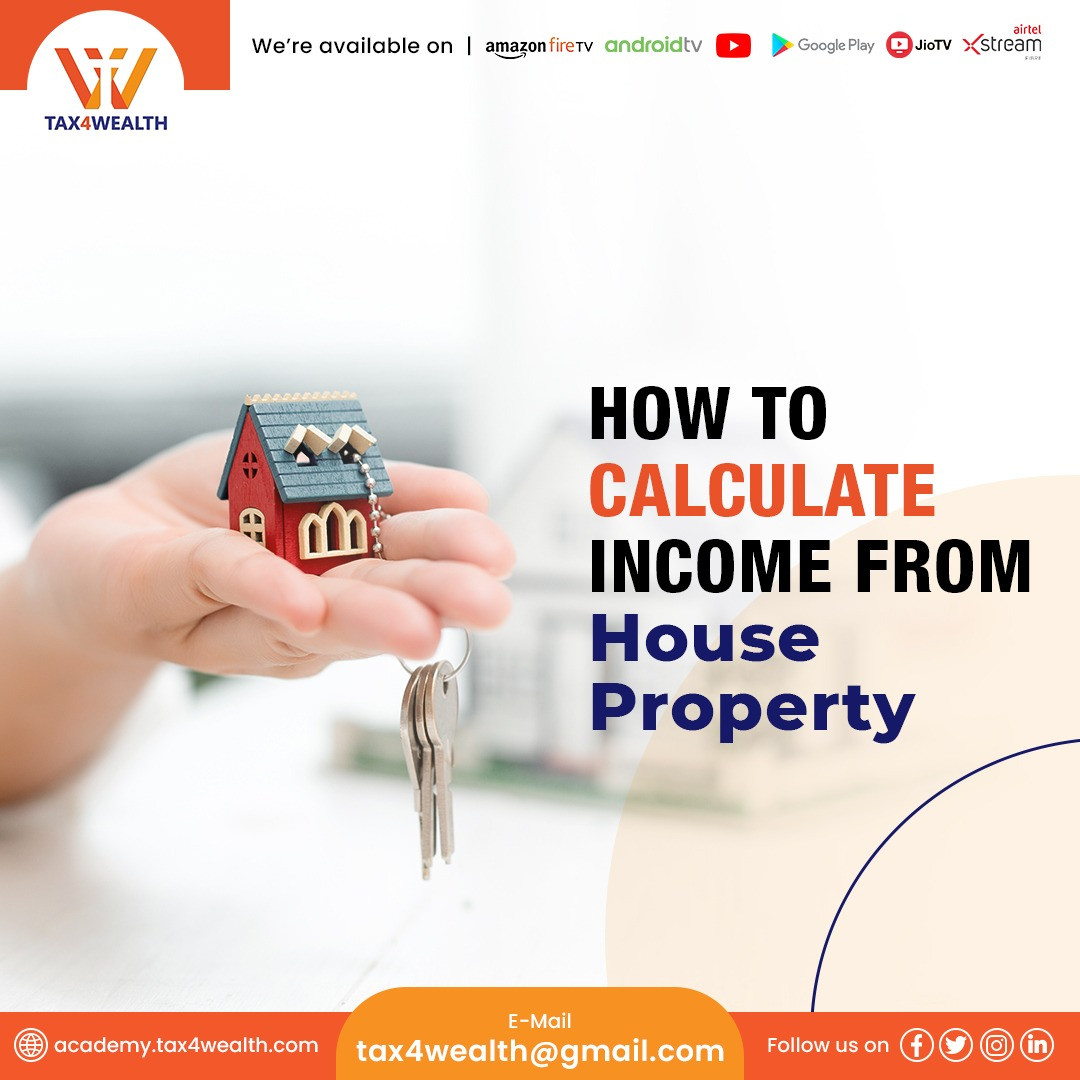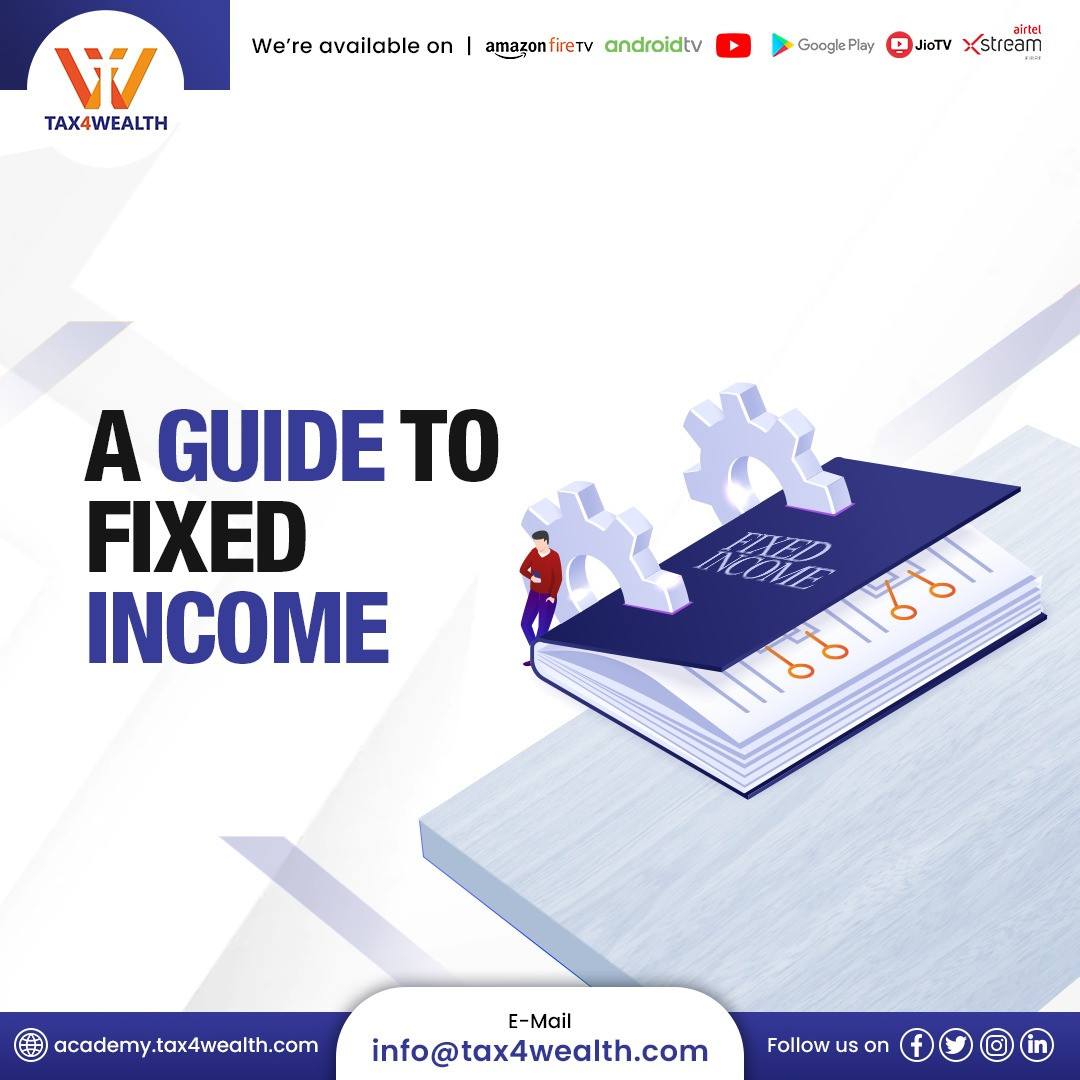
How to Calculate Income Under House Property
Introduction
The income that is earned from a property by the assessee is known as Income from House Property. If a individual owns a house and receives rental income is taxable. The actual rent received or notional rent is termed as annual value. However, if the assessee uses the house property for running a business or profession, it cannot be taxed as income from house property.
The following conditions must be fulfilled for an income to become Income from House Property;
- If the building or house property or land attached to house
- The owner of the property is the a taxpayer
- The taxpayer must not use the house to run or engage any sort of business or profession
Terminologies Related to Income From House Property
The following are some of the terminologies that are related to income from house property;
Annual value:
It is the actual rent received by the owner of the property for renting out the property
Municipal value:
It is the value on house property as computed by the authorities of Municipal Corporation for imposition of municipal taxes.
Fair Rent Value
It is the rent that is similar property with similar characteristics in the same area of fetching.
Standard Rent
The determination of standard rent is done under the provisions of Rent Control Act that is fixed for any property. The property owner cannot charge higher rent than the fixed standard rent.
Gross Annual Value (GAV)
It is the highest of the following;
- Rent received
- Fair market value
- Municipal Valuation
The Rent Control Act is applicable in case the Gross Annual Value is the highest of:
- Standard Rent
- Rent Received
Net Annual Value
Net Annual Value is computed as Gross Annual Value minus paid Municipal Taxes paid. In simple word, the formula is as follows;
Net Annual Value = Gross Annual Value - Municipal Taxes Paid
Deductions
Under Section 24 of the Income Tax Act, 1961, for ascertainment of actual taxable income, the taxpayer can claim the below mentioned deductions;
Standard Deduction
The taxpayer can claim 30% of the Net Asset Value as a deduction in respect of repairs and rent collection etc. irrespective of actual expenses incurred. The deduction is not permitted if the Gross Asset Value is Nil.
Interest on home loan:
Section 24 of the Income tax Act provides the provisions for deductions that can be claimed in respect of interest on home loan. The deduction limit under the aforesaid section is Rs 2 lakhs.
The following are the conditions that are associated while claiming exemption under tax on interest on home loan;
- Loans must be availed after 1 April 1991 for construction or purchase of property
- The claim can be made for existing construction, repair or reconstruction of property
- Prepayment and processing charges will be considered as interest payment
- The construction or purchase required to be completed within 3 years from ending of a financial year (the same year loan was availed)
Annual Value of Self Occupied House Property
If the house in which the taxpayer is residing is his only property that he/she owns. In that case annual value will be Nil. However, if he/she has more than one property, the all the purposes of occupation, then the property's annual value cannot be specified as Nil. The annual value of rest of the properties will be assessed as per the expected rent if the property is rented.
Calculation of Income from House Property
|
Gross Annual Value |
XXX |
|
Less: Municipal Taxes |
(XXX) |
|
Net Annual Value |
XXX |
|
Less: Deduction under Section 24 |
(XXX) |
|
Standard Deduction @ 30% |
(XXX) |
|
Interest paid on Borrowed Loan |
(XXX) |
|
Income from House Property |
XXX |
Calculation of Income of Self Occupied & Let Out House Property
|
Type Of House Property |
Self-Occupied |
Let Out |
|
Gross Annual Value |
Nil |
- |
|
Less: Municipal Taxes or local authorities tax |
Not applicable |
- |
|
Net Annual Value |
Nil |
- |
|
Less: Standard Deduction |
Not applicable |
30% of NAV |
|
Less: Interest on Housing Loan |
Restricted to Rs. 2 lakhs |
No limit |
|
Income from House Property |
XXX |
(From FY 2017-18 restricted to Rs. 2 Lakhs) |
Notes
Important Points for Computation of Income From House Property;
- Basing on the NAV of the property, the tax of house property is calculated.
- If the house of the assessee is vacant for a definite period of time and then later let out, the computation of Income from House Property should be done only for the rent received for that definite period and not for the whole year.
- If the house of the assessee is vacant for a the entire year and he lives in another city due to his or her employment, but is still paying municipal taxes, then this can be set off against income from other sources during the same year.
No comments yet, Be the first to comment.













